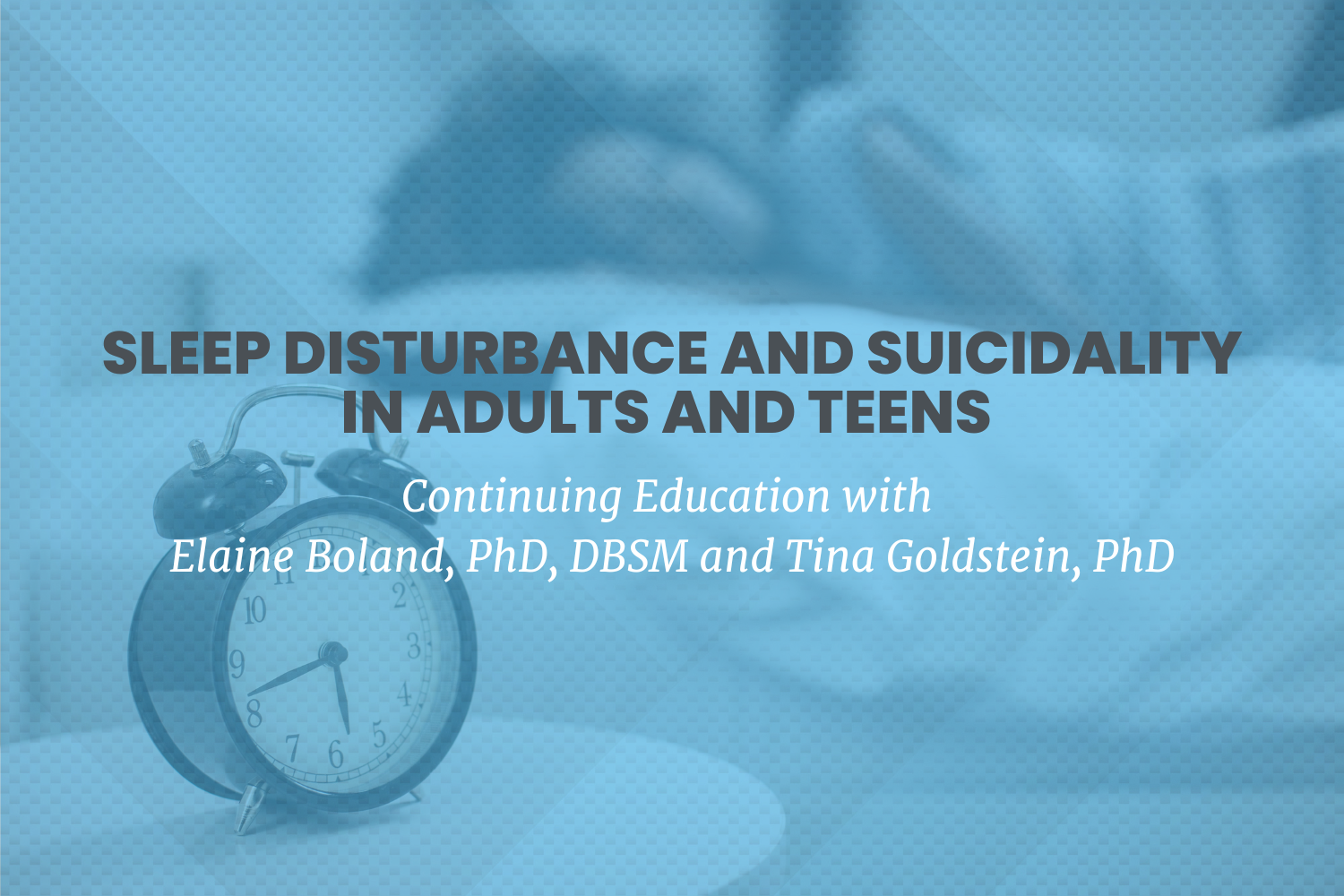Presented by Elaine Boland, PhD, DBSM and Tina Goldstein, PhD, this event is virtual and free to Psychologists for (2) Continuing Education credits for attending BOTH presentations. It is also free for community members seeking information around the topic.
11:00-12:00 PM - Sleep Disturbance and Suicide: Risks and Opportunities for Intervention with Dr. Elaine Boland
Sleep disturbance is a known risk factor for suicidal ideation, attempts and death by suicide. Evidence is also emerging that improvements in insomnia symptoms are connected to improvements in suicidal ideation. In this CEU presentation, we’ll review: 1) what is currently known about the links between sleep disturbances and suicidality, 2) what are the theorized mechanisms linking sleep problems with suicide, 3) what interventions are available to clinicians to help reduce suicide risk in adults, and 4) what are some useful assessment tools for identifying sleep problems in clinical practice.
Following this presentation participants will be able to:
Recognize the types of sleep disturbances linked to suicidal ideation
Understand the links between sleep disturbance and suicide independent of the influence of psychiatric disorders
Describe some of the theorized mechanisms that link sleep problems to suicidality
Explain the effects of insomnia treatment on suicidal ideation
Identify assessment tools for evaluating sleep disturbance in clinical practice
12:00-1:00 PM - Improving Teen Sleep with Dr. Tina Goldstein
Most known suicide risk factors are distal (i.e., long-standing, static), identifying who is at risk, but not when. Thus, our ability to reliably predict, and ultimately prevent, suicide among vulnerable populations remains inadequate.
In this presentation, we discuss the promise of targeting sleep difficulties to decrease suicidality among young people at-risk. We will review studies that support an association between a range of sleep problems and suicidality among youth. We will then explore ways that sleep difficulties may affect suicide risk, and subsequently describe promising sleep-related assessment and treatment approaches that may aid in identification and treatment of suicidal youth.
Following this presentation participants will be able to:
Describe research findings that support an association between sleep and suicidality in youth.
Delineate reasons why sleep health is a promising area for youth suicide prevention.
Understand ways in which sleep disturbance may contribute to suicide risk in youth.
Discuss approaches to assessing sleep patterns in youth that may aid in identification of youth with sleep difficulties.
Explain principles of evidence-based treatment of sleep difficulties for youth that show promise for at-risk youth.
The University of Colorado Department of Psychiatry is approved by the American Psychological Association to sponsor continuing education for psychologists. The University of Colorado Department of Psychiatry maintains responsibility for this program and its content.
Learn more about these presentations and our presenters here: Dr. Boland Presentation; Dr. Goldstein Presentation
This event is presented in association with:


